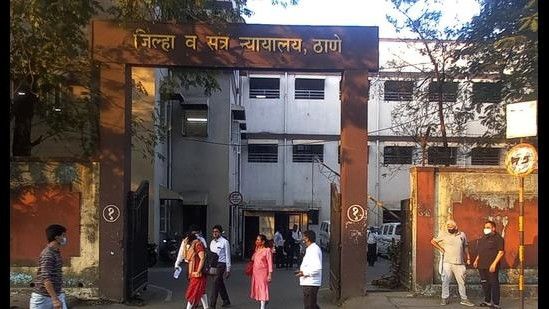
Mumbai: The Thane Sessions Court has rejected an appeal filed by a practicing advocate’s daughter seeking exclusive rights over a flat owned by her estranged father-in-law. The woman had approached the court after the Magistrate Court earlier dismissed her plea for property rights and maintenance.
The court, presided over by Judge Amit Shete, noted that the woman’s specific claim over the flat in Sanghavi Valley demonstrated that her primary interest was in the property. Calling the facts of the case “gross,” the court held that legal provisions regarding shared household rights were not applicable in her case.
Referring to the Supreme Court’s judgment in Prabha Tyagi vs. Kamlesh Devi (2022), the court observed that while an aggrieved person has the right to reside in a shared household under the Domestic Violence Act, this case did not satisfy the conditions for such relief.
“The law is well settled. However, the facts of this case are very gross in the context of the duration of the matrimonial life (three months) and the issue of the shared household. The applicant and her husband were living separately in another flat belonging to the respondent’s family. However, there seems to be a specific insistence on acquiring the Sanghavi Valley flat, which may have been influenced by the applicant’s father, who is an advocate,” the court noted.
The woman, Madhuri Kadam (name changed), a resident of Kalwa, married Mayuresh Kadam (name changed) in 2016. Both were divorcees who had met through a matrimonial service.
In her petition, Madhuri alleged that she was forced to perform domestic chores by her in-laws and that the couple was asked to reside separately in a different flat. She claimed her in-laws refused to transfer the Sanghavi Valley flat in Mayuresh’s name, prompting her to seek property rights, maintenance, and other relief from the Magistrate Court.
After her plea was rejected by the lower court, Madhuri filed an appeal in the Thane Sessions Court. Mayuresh Kadam opposed the allegations, stating that Madhuri and her family had concealed material facts about her previous marriage.
“The marriage was solemnized by Madhuri’s family before obtaining the divorce decree from her earlier marriage,” Mayuresh claimed in his reply to the court. He further alleged that Madhuri pressured his parents to transfer the Sanghavi Valley flat in his name and harassed them when they refused.
Mayuresh also argued that Madhuri’s father, who is an advocate, played a key role in the legal strategy to claim the flat. The court found that Madhuri failed to prove any instance of domestic violence, a key requirement under Section 19 of the Domestic Violence Act to claim a shared household.
“So far as the relief of possession of the shared household is concerned, Section 19 of the Act enables the court to pass an order for shared household. However, to obtain such relief, the aggrieved person must demonstrate domestic violence and the need for a protection order. In this case, Madhuri failed to satisfy these conditions,” the court held.
The court further noted that Madhuri and Mayuresh had lived separately during their brief three-month marriage, and her claim of domestic violence appeared questionable.
“It is also pertinent to note that the flat in Sanghavi Valley belongs to Mayuresh’s father. Therefore, he has every right to stay in any of his properties. Madhuri cannot insist on this flat being declared her shared household,” the judgment concluded.
The court dismissed the appeal, affirming that Madhuri was not entitled to the flat or any other relief sought in her application.